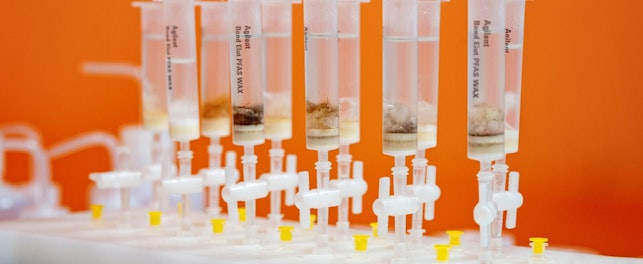
The field of microbiome-based therapeutics is transforming medicine, offering innovative ways to treat conditions ranging from gastrointestinal disorders to oncology.
Its unique nature presents distinct challenges, particularly in the absence of well-defined regulatory guidelines, requiring a fresh approach to clinical trial design.
This article provides a practical guide to designing clinical trials for microbiome-based therapeutics, drawing from past studies and lessons learned.
Understanding the unique nature of microbiome-based products
Microbiome-based therapies often include living organisms, such as bacterial strains or phages, designed to modulate the host's microbiome. This inherent complexity sets them apart from traditional drugs, which are absorbed and distributed systemically. Also, unlike conventional drugs, microbiome-based products may replicate or replace existing microbial populations (engraftment), raising novel questions about long-term effects and safety.
These products often function biologically, proliferating at the site of activity and producing metabolites rather than being metabolized themselves. This makes traditional drug endpoints, like pharmacokinetics, less relevant and calls for innovative approaches to trial design.
Adapting to financial constraints
For startups in microbiome-based therapeutics, funding constraints are a significant challenge. To address this, companies can focus on cost-effective, single-cohort trials that combine safety, tolerability and efficacy assessments. These trials provide crucial proof-of-concept data to secure additional funding for subsequent phases. While this approach may extend development timelines, it offers a financially feasible pathway to progress without compromising data quality.
Key considerations for trial design
Prioritize safety and tolerability: Establishing safety is always the foundation of any clinical trial. For microbiome-based products, this includes assessing not only adverse events (AEs) and serious adverse events (SAEs) but also local tolerability, particularly for site-specific applications like vaginal or topical products.
Unlike small molecule trials, which often begin with healthy volunteers, microbiome-based trials frequently involve patients from the start. This allows for early insights into efficacy but requires careful monitoring to distinguish side effects from symptoms of the underlying condition.
Engraftment as a critical endpoint: Engraftment, the process by which a therapeutic microbiome integrates with or replaces the existing microbiome, is a critical endpoint unique to these trials. Successful engraftment can indicate efficacy, but it also raises safety concerns, particularly about disrupting the balance of the native microbiome. Monitoring the short- and long-term effects of microbiome alterations is essential for ensuring patient safety.
- Symptom improvement, such as changes in stool consistency or reduced skin inflammation
- Reduction in disease-specific markers (e.g. dermatitis lesions, tumor size or infection rates)
- The production or reduction of metabolites associated with the therapy’s function
Because these therapies are highly targeted, endpoints should be designed to reflect their localized effects rather than systemic changes.
Consider simplified dose design: Microbiome-based products often require fewer dose levels than traditional drugs, as increasing the dose does mostly not enhance efficacy. Early trials may focus on single-dose regimens, with higher doses tested primarily for safety, such as microbial overgrowth in patients who already possess the strain. This streamlined approach helps reduce complexity and costs.
Use placebo-controlled designs strategically: Placebo controls are essential for robust efficacy assessments, particularly in later phase trials. Early phase trials may bypass placebos to focus on rapid proof of concept, but as development progresses, placebo comparisons become critical to satisfy regulatory requirements and demonstrate true therapeutic benefit.
Conclusion
Designing clinical trials for microbiome-based products requires a shift from traditional drug development approaches. The lack of standardized guidelines in this evolving field means that close collaboration with scientific advisors and regulatory authorities, such as the FDA, EMA or MHRA, is crucial. Early engagement with these bodies provides valuable insights into trial expectations and regulatory requirements.
Additionally, securing funding remains a key challenge for many companies in the microbiome sector. By demonstrating proof-of-concept through initial, cost-effective trials, companies can attract investment to support later stages of development. With strategic planning, both in trial design and funding, microbiome-based products can successfully progress toward market approval.
About SGS
SGS is the world’s leading Testing, Inspection and Certification company. We operate a network of over 2,700 laboratories and business facilities across 119 countries, supported by a team of 99,250 dedicated professionals. With over 145 years of service excellence, we combine the precision and accuracy that define Swiss companies to help organizations achieve the highest standards of quality, safety and compliance.
Our brand promise – when you need to be sure – underscores our commitment to trust, integrity and sustainability, enabling businesses to thrive with confidence. We proudly deliver our expert services through the SGS name and trusted specialized brands, including Brightsight, Bluesign, Maine Pointe and Nutrasource.
SGS is publicly traded on the SIX Swiss Exchange under the ticker symbol SGSN (ISIN CH0002497458, Reuters SGSN.S, Bloomberg SGSN:SW).




